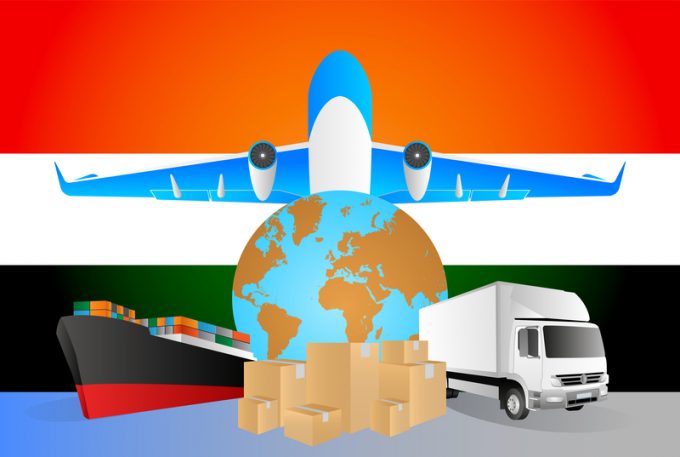Vizhinjam gets a head start in its quest to be a major transhipment hub
Vizhinjam Port, touted as India’s “hub counter” to Colombo in Sri Lanka, is gaining interest ...
TFII: SOLID AS USUALMAERSK: WEAKENINGF: FALLING OFF A CLIFFAAPL: 'BOTTLENECK IN MAINLAND CHINA'AAPL: CHINA TRENDSDHL: GROWTH CAPEXR: ANOTHER SOLID DELIVERYMFT: HERE COMES THE FALLDSV: LOOK AT SCHENKER PERFORMANCEUPS: A WAVE OF DOWNGRADES DSV: BARGAIN BINKNX: EARNINGS OUTODFL: RISING AND FALLING AND THEN RISING
TFII: SOLID AS USUALMAERSK: WEAKENINGF: FALLING OFF A CLIFFAAPL: 'BOTTLENECK IN MAINLAND CHINA'AAPL: CHINA TRENDSDHL: GROWTH CAPEXR: ANOTHER SOLID DELIVERYMFT: HERE COMES THE FALLDSV: LOOK AT SCHENKER PERFORMANCEUPS: A WAVE OF DOWNGRADES DSV: BARGAIN BINKNX: EARNINGS OUTODFL: RISING AND FALLING AND THEN RISING

India may be slowly easing out of lockdown, but limits on factory production and tight air and sea freight capacity are still jeopardising exports – particularly to the US.
Covid restrictions vary from state to state, but major economic hubs like Chennai, New Delhi, Mumbai and Tamil Nadu are allowing businesses to reopen.
However, factories in Mumbai, Ahmedabad, Chennai, Delhi and Banglaore are still limited to 50% occupancy, according to one Chennai-based forwarder.
He told The Loadstar: “Many exporters are expecting production delays of at least a month, leaving end customers no choice but to eventually uplift their goods only by airfreight to meet Christmas and new year sales – a major setback due to the added costs.”
Indeed, airfreight rates from the major export hubs of Bangalore, Mumbai, Delhi and Kolkata have all seen significant increases for the US market, he said, with rates of $6.5-$7 per kg, depending on the carrier.
“There is a challenge with space to the US which resulted in a spike in prices, and many shippers have have reported airfreight costs are now higher than product costs,” he added.
Rates to the UK are $3.2-$3.5 per kg, the forwarder said, also an uptick compared with EU prices of $3-$3.2 per kg.
“The UK market is currently experiencing a significant increase compared to EU markets, following Brexit, as customers feel moving shipments via EU gateways would cause delays in it reaching the UK,” he noted.
Meanwhile, container shortages and the glut of cargo out of China is continuing to put a drag on India’s sea freight market.
The forwarder said the ports of Nhava Sheva, Mundra, Tuticorin, Chennai, Kattupalli, Cochin and Ennore were still facing a “crisis” of equipment and space, with carriers restricting bookings on every major tradelane. Again, bookings to the US are the most impacted.
“There is severe space crunch from India to the US west coast and bookings are not available. Plus, rates are going up drastically and most carriers have implemented peak season surcharges,” he explained, noting 40ft rates had increased by $2,000 since last month.
He added: “With the impact and congestion in Singapore, Port Klang, Busan, Valencia and Yantian, average transit times for USWC have increased from 35 to 60 days or more.
“US importers and retailers expecting regular containers into the USWC, have started looking for alternative options of trucking shipments via east coast ports to save on lead time,” he said.
Comment on this article